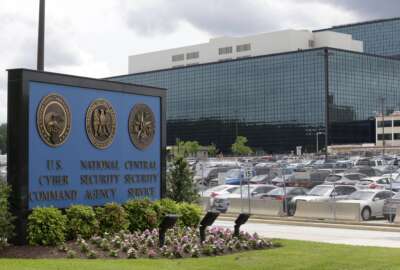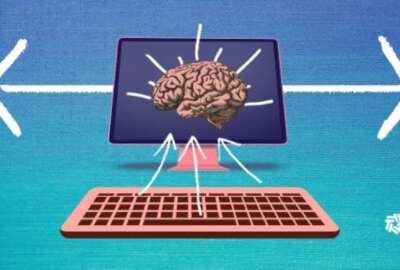NSA establishing ‘Artificial Intelligence Security Center’
The new center will focus on both setting security standards and ensuring U.S. advances in AI aren't stolen by foreign adversaries.
The National Security Agency is establishing a new “Artificial Intelligence Security Center” to help spur on the secure development and adoption of AI capabilities, and defend AI advancements from foreign adversaries.
NSA Director and Cyber Command chief Gen. Paul Nakasone broke the news during an event at the National Press Club on Thursday.
“The AI Security Center will become NSA’s focal point for leveraging foreign intelligence insights, contributing to the development of best practices guidelines, principles, evaluation methodology, and risk frameworks for AI security, with an end goal of promoting the secure development, integration, and adoption of AI capabilities within our national security systems and our defense industrial base,” Nakasone said.
The center also has a goal to “understand the threats against their intellectual property and collaborate to help prevent and eradicate threats,” Nakasone added.
National security leaders have been grappling with the rapid advancements and widespread availability of generative AI over the past year. Agencies are considering how to harness AI, machine learning and automation to advance a range of missions. The Biden administration expects to issue a new executive order on AI later this year.
“Today, the U.S. leads in this critical area, but this lead should not be taken for granted,” Nakasone said. “Our adversaries who have for decades use theft and exploitation of our intellectual property to advance their interests, will seek to coop our advances in AI and corrupt our application of it.”
The news about the center comes as the NSA also plans to establish a new “innovation pipeline” focused on China.
The NSA earlier this year completed an AI study that pointed to a “clear need” for a focus on security, Nakasone said. The NSA is responsible for setting security standards for the classified systems used across the Defense Department, the intelligence community, and cleared defense contractors.
Those organizations “are increasingly acquiring, developing and integrating AI capabilities into defense systems, cybersecurity, and mission capabilities,” Nakasone said. “Concurrently, adversaries are moving quickly to develop and apply their own AI, and we anticipate they will begin to explore and exploit vulnerabilities in U.S. and allied AI systems.”
He said the new AI center will work with industry, national laboratories and academia. The Cybersecurity Collaboration Center, which will house the new entity, was established in 2021 as an unclassified facility to share cyber threat information with the private sector.
“AI security is about protecting AI systems from learning, doing and revealing the wrong thing,” Nakasone said. “It is a set of practices to protect AI systems and life cycles from digital attacks, theft and damage. We must build a robust understanding of AI vulnerabilities, foreign intelligence threats to these AI systems and ways to encounter the threat in order to have AI security. We must also ensure that malicious foreign actors can’t steal America’s innovative AI capabilities.”
NSA and CYBERCOM prepare for shutdown
Meanwhile, Nakasone said guidance has been distributed across both NSA and CYBERCOM to prepare for a government shutdown.
“We will be able to conduct our missions, we will ensure the security of what we’re tasked to do,” he said. “I am concerned personally, just being the leader of organizations with regards to both a civilian and military workforce that could go without pay in two weeks as paychecks come due. And people have obviously their own requirements and their own bills and their own lives that they have to lead. So that certainly has my attention. “
Copyright © 2025 Federal News Network. All rights reserved. This website is not intended for users located within the European Economic Area.
Follow @jdoubledayWFED






